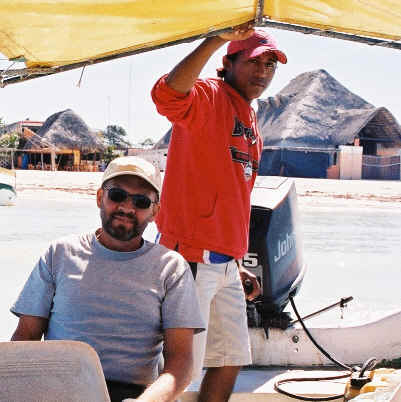The following was adapted from a letter I wrote to the editor of the Aberdeen Daily World in 1996.
One often hears folks say that our nation's founders intended to create the U. S. as a Christian nation and that the constitutional interpretations of "liberal judges” corrupted this intent. Such a statement is a perversion of historical fact.
Thomas Jefferson explains clearly in his autobiography that at its very foundation our nation was created under God - not under Christ. This is particularly evident in Jefferson's report of debate in the Virginia General Assembly (the oldest legislature of the U.S.) during its work of reviewing and rewriting the colonial legal code, to a form more appropriate "to our republican form of government", an undertaking mandated by legislation proposed by Jefferson and adopted by the General Assembly.A Committee of the Assembly composed of "Mr. Pendleton, Mr. Wythe, George Mason, Thomas L. Lee and myself", Jefferson wrote, had divided the colonial code into statutes deriving from different historical periods "from the Magna Carta to the present", to review and recommend appropriate revisions. The Committee (minus Mr. Lee who had died shortly after appointment) reported and recommended 126 different bills to the General Assembly on June 18, 1779, one of which, drafted by Jefferson, addressed religious freedom.
"The bill for establishing religious freedom", Jefferson wrote, "I had drawn in all the latitude of reason and right. It still met with opposition; but, with mutilations in the preamble, it was finally passed; and a singular proposition proved that it's protection of opinion was meant to be universal. Where the preamble declares that 'coercion is a departure from the plan of the holy author of our religion', an amendment was proposed, by inserting the word 'Jesus Christ', so that it should read 'Jesus Christ the holy author of our religion.' The insertion was rejected by a great majority, in proof that they meant to comprehend, within the mantle of it's protection, the Jew, the gentile, the Christian, and Mahometan, the Hindoo, and infidel of every denomination."
And so it was Jefferson, perhaps the leading political theorist of his time, who, some 10 years before the U. S. Constitutional Convention, produced a draft of the constitution for the new state of Virginia, which Madison later crafted into the U. S. Constitution and the Bill of Rights. Jefferson's Virginia "Bill for Religious Freedom", eloquently transformed by Madison, became the 1st Amendment guarantees of religious freedom. Madison was the craftsman - Jefferson was the architect.
In the ensuing years the Supreme Court has many times supported its church/state decisions by quoting Jefferson. From Taylor v United States (1879), the Court's first decision under the religion clause, to Everson v Board of Education (1947), in which the Court used Jefferson's "wall of separation" metaphor in declaring "The first amendment has erected a wall of separation between church and state. The wall must be kept high and impregnable".
The guarantees of religious freedom for each of us, including "infidel(s) of every denomination", were the creation of two prominent Virginia planters who chafed under the collar of the state established Anglican church, profession to which, in many colonies, was required for a citizen to vote or hold office, and financial support of which was mandatory and often coerced. Jefferson and Madison worked with George Mason and Patrick Henry and with Baptists and Presbyterians to finally, in 1786, disestablish the state church through the adoption by the Virginia General Assembly of Jefferson's "Bill for Establishing Religious Freedom". Disestablishment soon spread through the South, and ended in Massachusetts in 1833 with the separation of the authority of the Congregationalist church from that of the civil government.
The facts are clear; some simply won't allow space within their ridged ideological constructs for even a glimpse, some dismiss them as corruptions of “liberal judges."

No comments:
Post a Comment